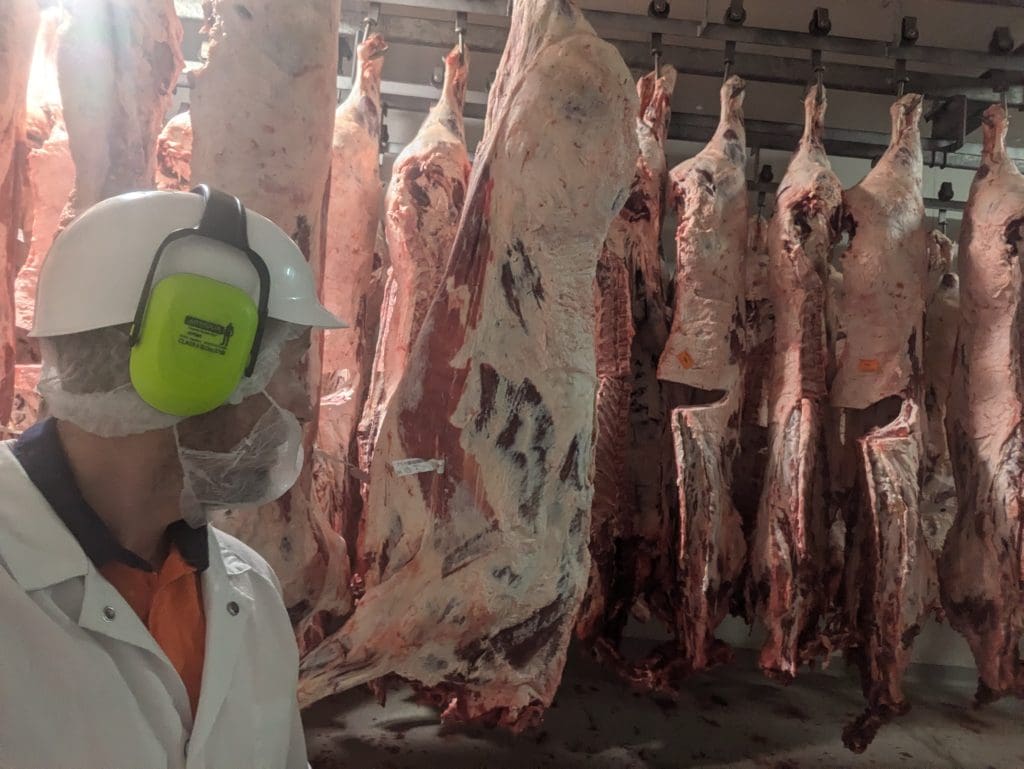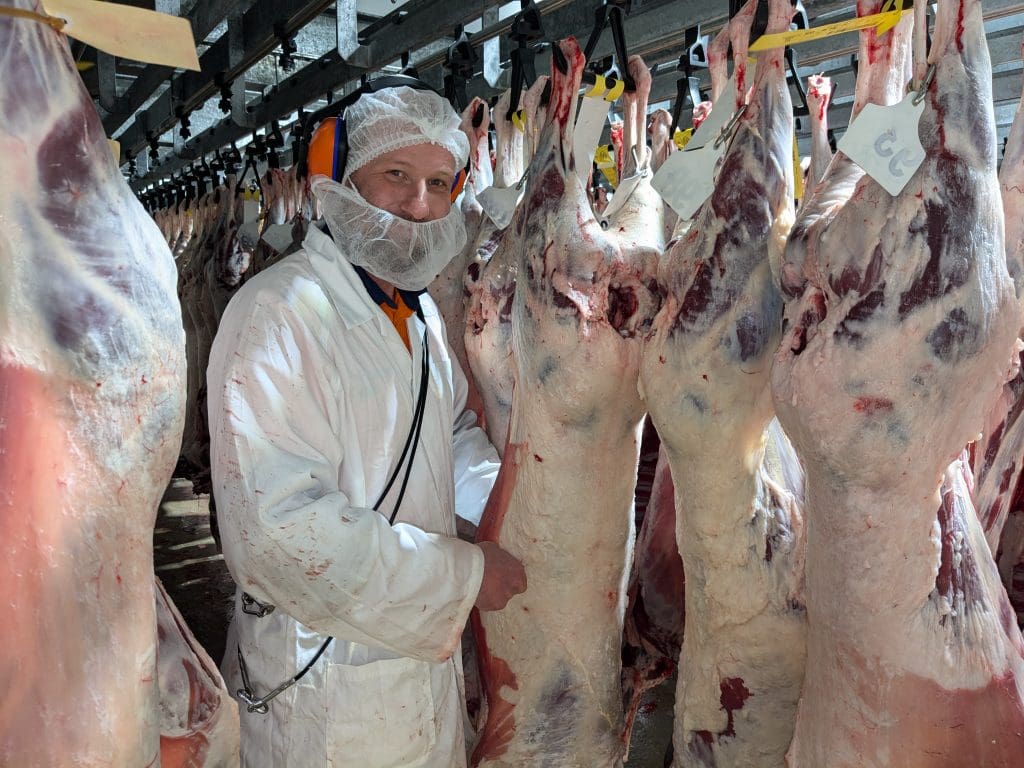FROZEN meat cuts can be stored longer at warmer temperatures than commonly practiced without negative effects, according to NSW meat research.
The quality of aged meat in carcase form is preserved even after two years of frozen storage at −12 °C, according to researchers from the NSW Department of Primary Industries and Regional Development.

Ben Holman
Their findings double the length of time that aged meat can by frozen-stored and shaves 6 °C off traditional freeze-store temperatures.
According to the lead meat scientist Dr Benjamin Holman, two years of frozen storage at −12 °C was viable for aged cuts of red meat and provides comparable quality to a colder (−18 °C) frozen storage temperature.
“This finding could offer logistics efficiency and energy savings for cold stores,” he said. “Warmer frozen storage temperatures benefit sustainability, so there are advantages … provided that meat quality and safety is retained.”
He said while the effects of frozen storage on beef and lamb have been widely reported, these were usually for storage periods of less than two years and without comparing temperatures.
The researchers investigated the effect on quality after two years frozen storage at −12 or −18 °C of five-week aged beef and aged or unaged lamb meat. Click here to access the report.

The study found microorganism populations on the meat were unchanged but the tenderness of beef – measured using WB shear force – increased with frozen storage.
“It is probable that ice crystal formation and their disruption of connective tissue contributed to frozen beef having a looser microstructure and lower shear force values to the unfrozen beef.” Dr Holman said.
A second study compared un-aged and eight-week-aged lamb frozen for two years at either frozen storage temperature. “There were no differences in lamb meat quality or microbial status as a result of frozen storage,” Dr Holman said.
Other researchers involved in the study were Dr Cassius Coombs and Prof David Hopkins.

lead meat scientist Dr Benjamin Holman

HAVE YOUR SAY